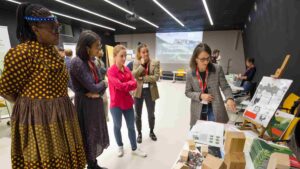Abstract/Description
The Adaptation at Altitude programme aims to foster exchange among the mountain areas of the world and promote short- and long-term solutions to the problems arising from climate change. One way the programme is doing this is through the Adaptation at Altitude Solutions Portal and Knowledge Network (built on the theory of a community of practice), which provide space for those interested in climate change adaptation in mountains to share their experiences and knowledge.
Solutions can be shared via the Adaptation at Altitude Solutions Portal, with the goal of increasing the resilience and adaptive capacity of mountain communities and ecosystems to climate change. The Solutions Portal, containing short or detailed solutions, allows users to explore tried and tested climate change adaptation solutions for mountain regions, see where they have been implemented, and by who.
The Adaptation at Altitude Knowledge Network began in 2023 and is a network where participants share experiences and knowledge on adaptation in the mountains and collaborate to accelerate the uptake of innovative solutions. Meetings and learning events have been held each year, based on topics of interest that participants have suggested, to encourage open and useful forums of learning and exchange for participants.
This presentation will highlight the Adaptation at Altitude Solutions Portal and Knowledge Network, emphasising the importance of knowledge sharing and exchange, as well as encourage participation and engagement in the future exchanges.


